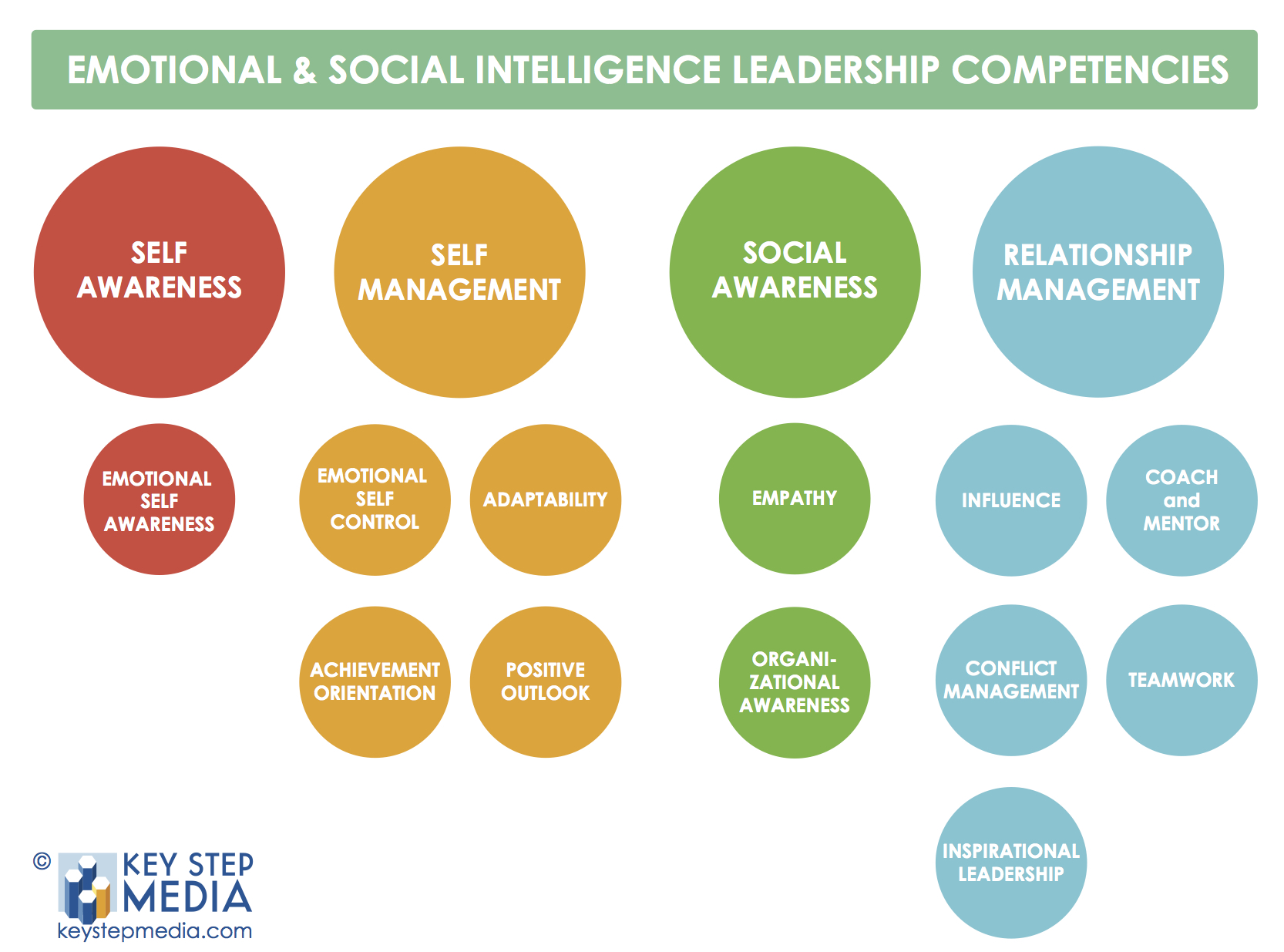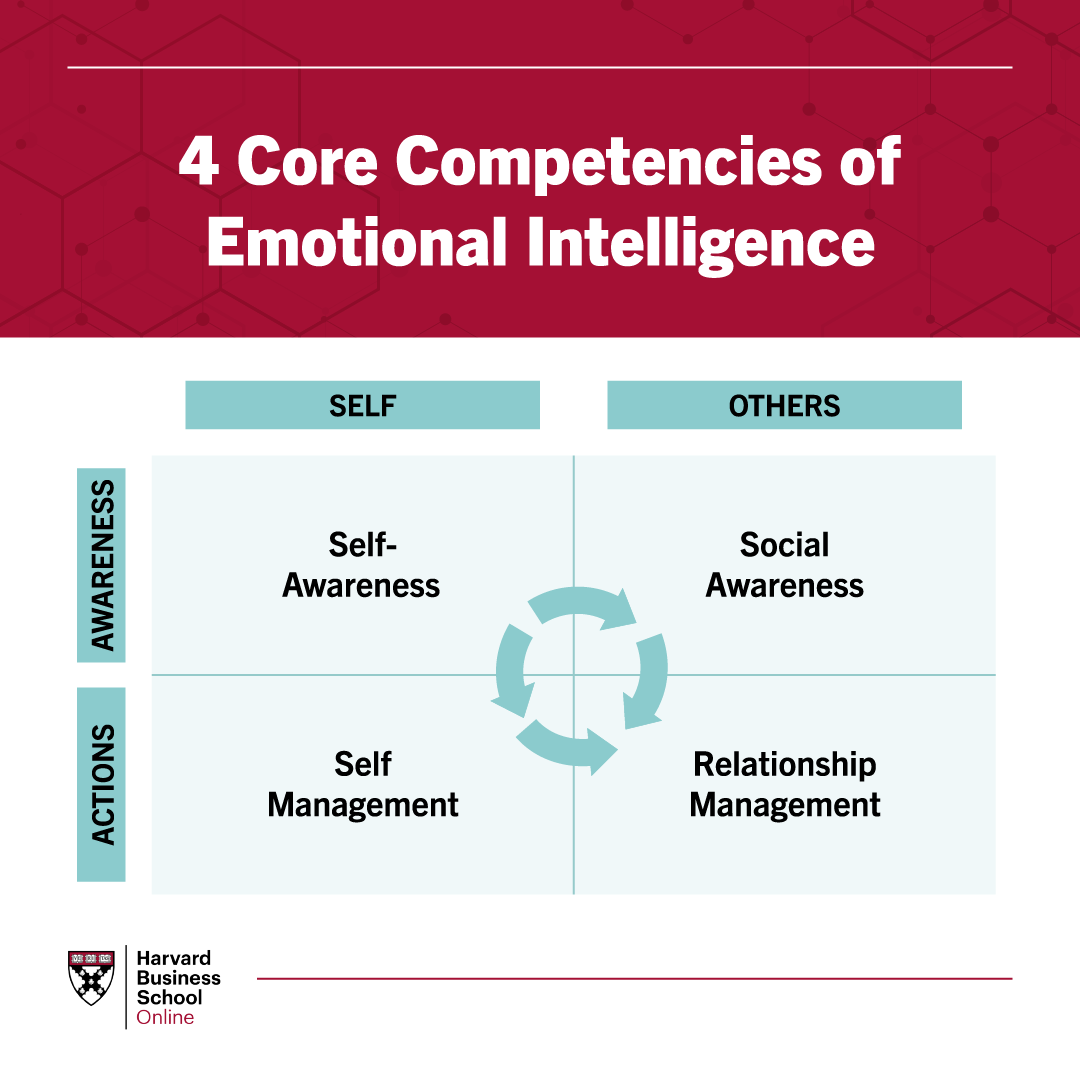Emotional Intelligence in Leadership: The Key to Effective Management
In today’s complex and ever-evolving business landscape, emotional intelligence (EQ) is no longer just a “nice-to-have” quality for leaders—it’s essential. Leaders with high emotional intelligence inspire loyalty, foster collaboration, and enhance the performance of their teams. This article explores the importance of emotional intelligence in leadership, its core components, and how it can transform organizational success.

What is Emotional Intelligence?
Emotional intelligence refers to the ability to recognize, understand, manage, and influence emotions in oneself and others. Leaders with high emotional intelligence can maintain control during stressful situations, empathize with their team members, and make decisions with emotional clarity.
The Core Components of Emotional Intelligence
Daniel Goleman, a leading expert on emotional intelligence, identifies five core components that every leader should develop:
- Self-Awareness
Self-awareness is the foundation of emotional intelligence. Leaders who are aware of their own emotions are better equipped to control them. This means understanding how emotions influence your thoughts and behaviors. -
Self-Regulation
Emotionally intelligent leaders can regulate their emotions, especially in challenging situations. Self-regulation involves staying calm under pressure and not reacting impulsively. -
Motivation
Motivation is the drive to achieve beyond expectations. Leaders with high emotional intelligence use their emotional understanding to inspire themselves and others. -
Empathy
Empathy allows leaders to understand and resonate with the feelings of their team members. Empathetic leaders can build stronger, more trusting relationships with their teams.
-
Social Skills
Social skills include effective communication, conflict management, and the ability to influence others. Leaders with strong social skills are adept at building networks and fostering positive team dynamics.
Why Emotional Intelligence Matters in Leadership
Leaders who develop emotional intelligence can create a positive work environment that promotes creativity, productivity, and trust. By being emotionally in tune with themselves and their teams, they are more adept at managing stress, resolving conflicts, and making sound decisions.
Emotional Intelligence vs IQ: Why EQ Wins in Leadership
While IQ (Intelligence Quotient) might predict technical skills or cognitive abilities, it is EQ that determines how well you interact with others and handle leadership responsibilities. Emotional intelligence is a better predictor of success in leadership roles because:
- It helps leaders navigate complex interpersonal relationships.
- It enables better decision-making under pressure.
- It builds a more cohesive and collaborative team.
“A leader’s emotional intelligence has a direct impact on team performance and organizational success.” — Daniel Goleman
How Emotional Intelligence Improves Decision-Making and Conflict Resolution
Emotionally intelligent leaders are better equipped to make decisions that take into account both logic and human emotion. This balanced approach leads to more thoughtful, inclusive, and impactful decisions.
- Balanced Decision-Making: Leaders who are aware of their emotional triggers and biases can approach problems more objectively.
- Effective Conflict Resolution: Leaders with empathy and strong social skills are more adept at resolving conflicts by understanding different perspectives and mediating solutions.
How to Develop Emotional Intelligence as a Leader
Developing emotional intelligence is a continuous process. Here are some strategies that can help leaders build their emotional intelligence and improve their leadership effectiveness:
- Practice Self-Reflection
Regularly reflecting on your emotions, thoughts, and actions can help you better understand your emotional triggers. This will improve your self-awareness. -
Seek Feedback
Asking for feedback from your peers and team members can give you insights into how others perceive your emotional intelligence. -
Empathy in Leadership
To be an effective leader, you must learn to walk in your team members’ shoes. Empathy is critical for understanding their emotions, motivations, and concerns.
Active Listening Techniques
Leaders with high emotional intelligence practice active listening, a skill that allows them to fully understand and respond to their team members’ needs.
- Maintain eye contact and avoid distractions.
- Reflect back what you’ve heard to confirm understanding.
- Ask open-ended questions to encourage deeper conversations.
Understanding Non-Verbal Cues
Leaders also need to pay attention to non-verbal communication, such as body language, facial expressions, and tone of voice, which can often provide more insight into a person’s emotions than words alone.
Stay tuned for the second half of the article where we explore the benefits of emotional intelligence for organizational success, emotional intelligence in various leadership styles, and EQ training for leaders.
Internal Links
– Learn more about effective leadership strategies on our blog.
External Links
– Discover insights from Daniel Goleman’s emotional intelligence framework here.
This half of the article establishes the importance of emotional intelligence in leadership and provides a detailed exploration of its key components, laying the groundwork for the remaining sections on organizational benefits, leadership styles, and challenges.
Benefits of Emotional Intelligence in Leadership
Emotional intelligence (EQ) in leadership isn’t just about creating harmony in the workplace—it offers tangible benefits that drive organizational success. Leaders who prioritize EQ can foster a high-performance culture where employees feel motivated and valued. Here are some key benefits that emotional intelligence brings to an organization:
- Improved Team Performance
Teams led by emotionally intelligent leaders tend to outperform those led by leaders with lower EQ. Why? Because such leaders can manage team dynamics effectively, address concerns empathetically, and inspire team members to collaborate better. -
Enhanced Employee Engagement
Leaders with high emotional intelligence can connect with their employees on a deeper level, making them feel understood and appreciated. This leads to greater employee satisfaction, which directly impacts retention and productivity. -
Reduced Workplace Conflict
Emotional intelligence helps leaders navigate workplace conflicts more effectively by mediating disputes with empathy and clear communication. Leaders who understand different perspectives can resolve issues before they escalate. -
Better Adaptability to Change
In today’s fast-paced business environment, change is constant. Leaders with high emotional intelligence can manage their own emotional responses and help their teams stay resilient during transitions.
“Emotional intelligence is not just a key to personal success, it’s the foundation of great leadership and organizational health.” — Daniel Goleman

Emotional Intelligence and Different Leadership Styles
Emotional intelligence plays a significant role in various leadership styles. Whether a leader practices transformational leadership, democratic leadership, or servant leadership, emotional intelligence enhances their ability to connect with their team and drive results.
Transformational Leadership
Transformational leaders inspire their teams by fostering a shared vision and encouraging personal and professional growth. High emotional intelligence helps transformational leaders understand their team’s emotions, making it easier to motivate and inspire them to exceed expectations.
Democratic Leadership
In democratic leadership, emotional intelligence is essential for creating a collaborative and inclusive environment. Leaders with high EQ listen to their team members, value their input, and make decisions that reflect the collective wisdom of the group.
Servant Leadership
Servant leaders put the needs of their team members first, and this requires empathy and understanding—both of which are key components of emotional intelligence. By focusing on serving others, emotionally intelligent leaders create an atmosphere of trust and empowerment.
Developing Emotional Intelligence: A Key to Leadership Success
While some leaders naturally possess high emotional intelligence, the good news is that EQ can be developed over time. Here are some strategies for enhancing emotional intelligence in leadership:
- Mindfulness and Self-Awareness
Leaders can practice mindfulness to become more aware of their emotions. By regularly reflecting on their emotional responses, they can better understand how their emotions influence their decisions and interactions. -
Active Listening and Empathy
Leaders can improve their empathy by practicing active listening—paying full attention to what others are saying without judgment. This helps in understanding team members’ perspectives, fostering a deeper connection and trust. -
Feedback and Continuous Learning
Receiving feedback from peers and employees can help leaders identify areas where they need to improve their emotional intelligence. Investing in leadership coaching or EQ workshops is another effective way to enhance these skills. -
Emotional Regulation Techniques
Techniques like deep breathing, meditation, or journaling can help leaders regulate their emotions. Leaders who can manage their emotional responses are better equipped to handle stressful situations.

Common Challenges Leaders Face with Emotional Intelligence
Despite its many benefits, developing emotional intelligence in leadership can present challenges. Here are a few common obstacles and tips for overcoming them:
- Over-reliance on Empathy:
While empathy is critical, too much can lead to empathy fatigue. Leaders need to balance empathy with boundaries to avoid burnout. -
Misunderstanding Emotional Cues:
Even leaders with high EQ can misinterpret non-verbal cues. This can lead to misunderstandings in the workplace. Leaders should continually refine their ability to read body language and emotional signals. -
Cultural Barriers:
Emotional intelligence may be expressed differently across cultures. Leaders working with diverse teams need to be aware of these differences and adapt their communication styles accordingly.
FAQs About Emotional Intelligence in Leadership
1. Why is emotional intelligence important for leaders?
Emotional intelligence helps leaders understand and manage their own emotions and the emotions of others, leading to better decision-making, improved team dynamics, and enhanced performance.
2. Can emotional intelligence be developed?
Yes, emotional intelligence can be developed through self-reflection, active listening, feedback, and mindfulness practices. Continuous learning and leadership coaching can also help leaders enhance their EQ.
3. How does emotional intelligence impact team performance?
Leaders with high emotional intelligence create a supportive and trusting environment, which fosters better communication, higher engagement, and improved team collaboration, ultimately leading to better performance.
4. What are the key components of emotional intelligence in leadership?
The key components include self-awareness, self-regulation, motivation, empathy, and social skills. These components help leaders navigate challenges and lead effectively.

Conclusion
In today’s dynamic and competitive business world, emotional intelligence is an essential trait for any effective leader. By fostering self-awareness, empathy, and strong social skills, leaders can inspire their teams, resolve conflicts, and adapt to change more successfully. Developing emotional intelligence is a continuous journey, but the rewards for both the leader and their organization are profound.
As businesses continue to evolve, so too must leadership approaches. Building emotional intelligence will not only enhance organizational success but also create a more inclusive, engaging, and human-centered workplace culture.
For further reading, explore our in-depth resources on effective leadership strategies or check out Daniel Goleman’s work on emotional intelligence.
This concludes our detailed exploration of emotional intelligence and its impact on leadership. Keep developing your EQ to lead with compassion, purpose, and effectiveness.

